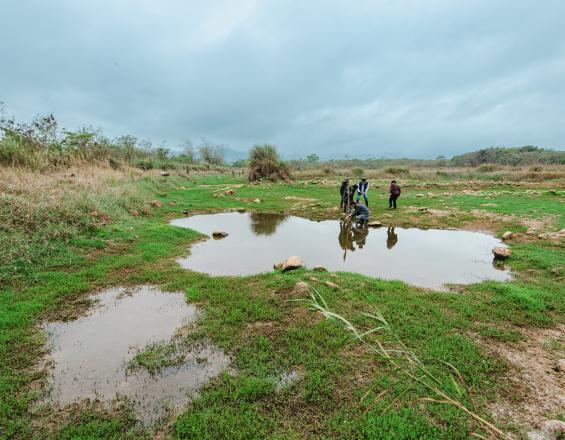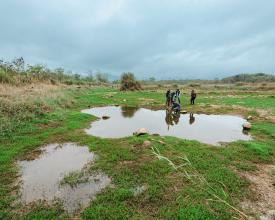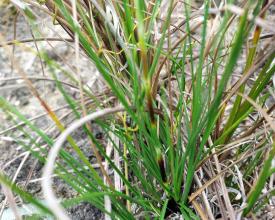
Endangered Species Conservation and Patrol Project Launched in Xingfu Wetland

Thirty years ago, Chishang Township’s (Taitung County, Taiwan) famous lunch boxes, Fanbaos, used to feature Aphyocypris kikuchii as a side dish, but their population declined due to habitat destruction and overbreeding of invasive species. In recent years, both the fish and the once-regionally-extinct Schoenus falcatus plant were rediscovered in the Xingfu wetland, inspiring the Taitung County Youth and Elderly Co-creation Social and Environmental Care Association to start their protection from 2019. The Association conducts hydrological surveys in the wetland and implements measures to monitor and protect it. They consult with professionals on the methods for invasive species elimination, train eco-tour guides, and encourage farmers to adopt the Satoyama spirit and transition to eco-friendly farming practices. To address the wetland's water level drop caused by earthquakes and droughts and endangering Aphyocypris kikuchii, the Association translocated the broodstock to artificial ponds for conservation purposes.
Context
Challenges addressed
Location
Impacts
The Xingfu wetland is culturally significant to local residents, as it was once a site for fishing, hunting, grazing, and a ritual site for the indigenous Amis, which makes its protection even more important. Aphyocypris kikuchii has been successfully bred, with 500 individuals now present. Through environmental education initiatives and invasive species elimination events organized by the association during the annual Amis rituals, up to 60 kg of aquatic alien species have been successfully eliminated each year. The Association is also exploring various uses for alien plant species, including food, clothing, education, and entertainment. They also invite local elders to be trained as tour guides and develop eco-tourism activities. About 500 tourists participate in the environmental education tours each year.
As the wetland area is a highly popular tourist destination, the Association not only works to protect the wetland but also aims to educate local residents on how to identify invasive alien species by the means of Citizen Science Systematic Roadkill Surveys. The association is devoted to conserving native plants and animals, while also working to promote a harmonious relationship with nature and reviving Chishang Township's culture as a land of fish and rice.


